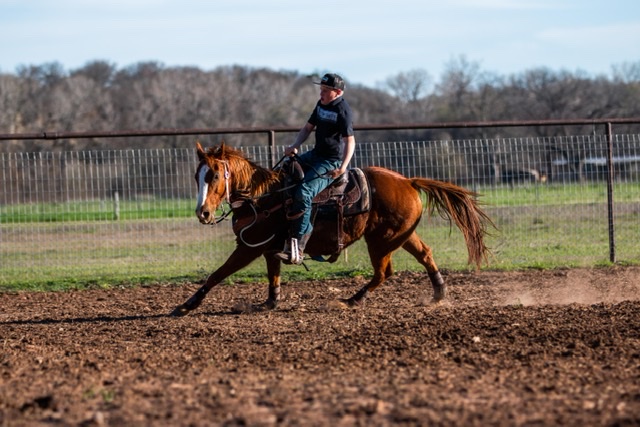Benefits Of Equine Therapy Programs
What is equine therapy? Equine psychotherapy programs incorporate horses into the therapeutic process in which patients engage in caring for and nurturing horses. Activities include feeding, grooming, and leading the horse while also being supervised by a mental health professional. Furthermore the goals for the patient include developing self esteem, patience, and emotional stability and regulations. The benefits of equine therapy have shown to be various and long lasting.
History of equine therapy
Where does this type of mental health therapy come from? Interestingly horses have provided therapeutic benefits to humans dating all the way back to the ancient Greeks. In fact Hippocrates (the famous Greek physician) who was known as the “Father of Medicine,” wrote about the therapeutic benefits of riding horses.
Jumping forward to the 1950s and 1960s, horseback riding became more prevalent in the US. Around this time the North American Riding for Handicapped Association was created. This group would later develop into the Professional Association of Therapeutic Horsemanship (PATH) International.
Additionally in the 1990s a man named Greg Kersten invented the term “Equine Assisted Psychotherapy” to describe his specific type of equine therapy program. Kersten did “equine-assisted” therapy with at risk youth who were in treatment or incarcerated. He was the first to use this term to explain the healing benefits of horses on human beings. Additionally in 1995 Kersten used his own corporation, Equine Services, Inc. to publish the first Equine Assisted Psychotherapy training manual. He later used this manual to certify professionals in Equine Assisted Psychotherapy to further help others.
Horse therapy helps humans develop emotional awareness.

What are the benefits of equine therapy programs?
While humans, regardless of position, have an underlying judgment, or perceived judgement of other humans, horses just are what they are. This provides a safe environment for patients to be themselves and open up about their issues and trauma. An equine environment can make it more comfortable for patients to explore deep emotional hurts and painful experiences.
Who can benefit from equine therapy?
Anyone can benefit from equine therapy programs. That’s because horses are observant, vigilant, and in tune to their surroundings. For example they are sensitive to humans’ movements and feelings. They have even been known to mirror a patient’s emotions and behaviors even going so far as to bond. This connection helps the client feel safe to express themselves thus experiencing a deeper healing. So who can benefit from equine therapy?
- People with trauma
- Patients with anxiety
- Alcoholics and addicts
- Patients with ADHD
- Autistic clients
- PTSD patients
How can patients with substance abuse disorders benefit from equine therapy programs?
Patients who suffer from alcoholism and or addiction can benefit greatly from horse therapy programs. That’s because these types of patients are often emotionally stunted and mentally stagnant. Early sobriety can be difficult because patients are flooded with uncomfortable feelings such as: anxiety, guilt, frustration, depression, anger, restlessness, and more.
They are often fearful of the future and insecure about their own ability to move forward.
This is where equine therapy programs come in and help the patient deal with anxiety by experiencing peace and mindfulness with the horse. The patience needed to care for the horse can decrease anxiety, frustration, and anger because he or she is working through these emotions with hands on work with the non judgemental animal. Furthermore they are nurturing the animal and creating a routine that requires structure; something addicts often lack in their everyday life.
Accomplishing a nurturing routine with the horse in one’s equine therapy program often creates a sense of confidence and self esteem. Due to the fact the patient was able to develop a trusting relationship with the animal, they often become more confident going into their own lives and developing healthy relationships with their loved ones. They often gain a sense of accomplishment which develops into self esteem and self worth. These are important emotions for the patient to avoid relapse and become a more productive person. Additionally, the equine therapy atmosphere can seem less threatening and more inviting than a traditional sit down talk session with a therapist.
For more more information and sources:
1. Whalen CN, Case-Smith J. Therapeutic effects of horseback riding therapy on gross motor function in children with cerebral palsy: A systematic review. Phys Occup Ther Pediatr. 2012;32(3):229-242.
2. “Learn about EAAT”. Path International. Retrieved 16 January 2016.
3. ^ Smith, Cher. “Equine-Facilitated Psychotherapy”. Retrieved 16 January 2016.
4. ^ a b c d e f g Anestis MD, Anestis JC, Zawilinski LL, Hopkins TA, Lilienfeld SO (2014). “Equine-related treatments for mental disorders lack empirical support: a systematic review of empirical investigations”. J Clin Psychol (Systematic review). 70 (12): 1115–32. doi:10.1002/jclp.22113. PMID 24953870.
5. Signal, Tania; Wilson, Rachel; Nelson, Angie (18 August 2016). “Equine Assisted Therapy and Learning”. Society & Animals. 24 (4): 337–357. doi:10.1163/15685306-12341418.




